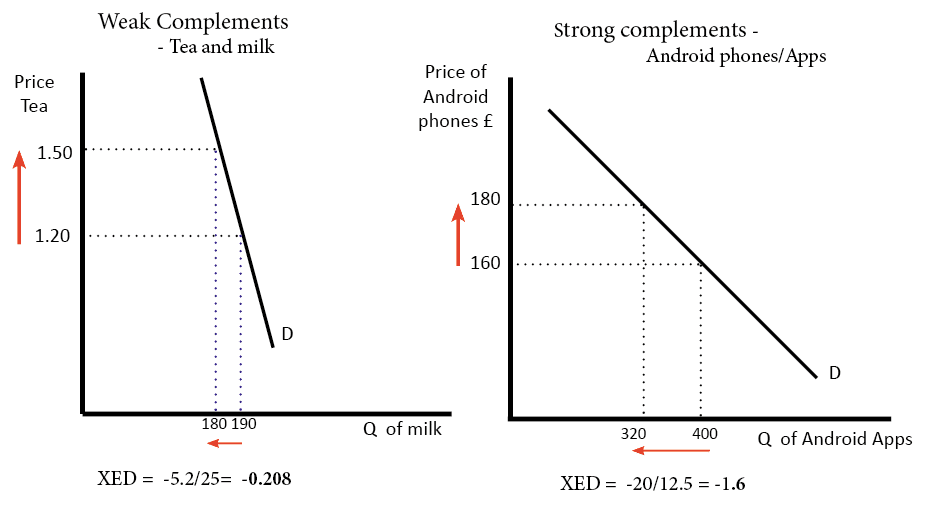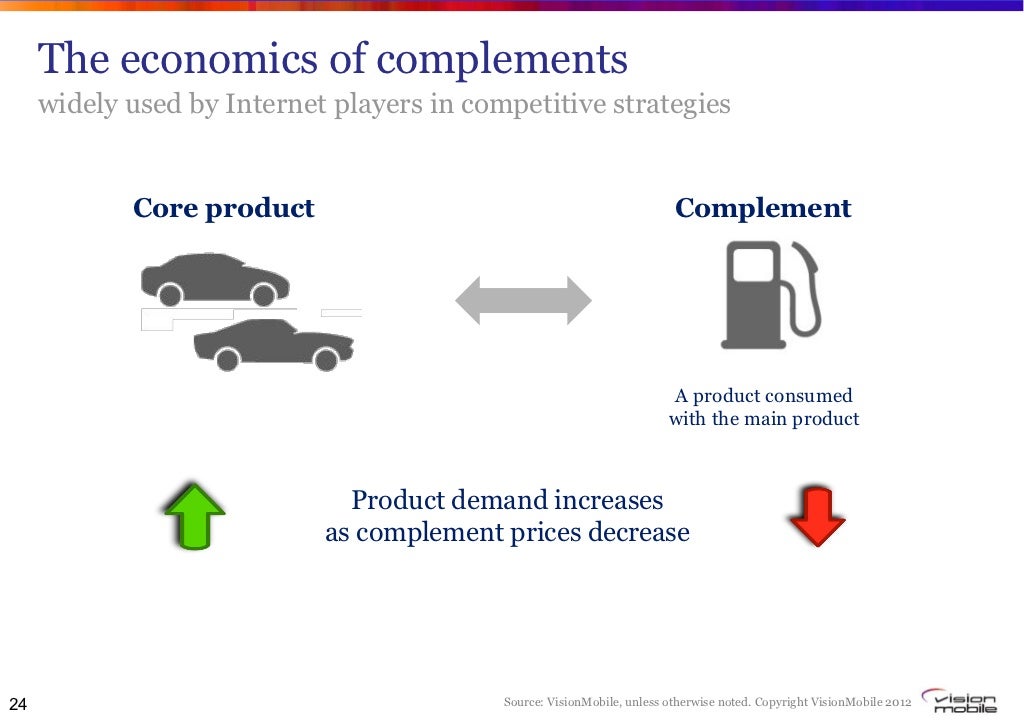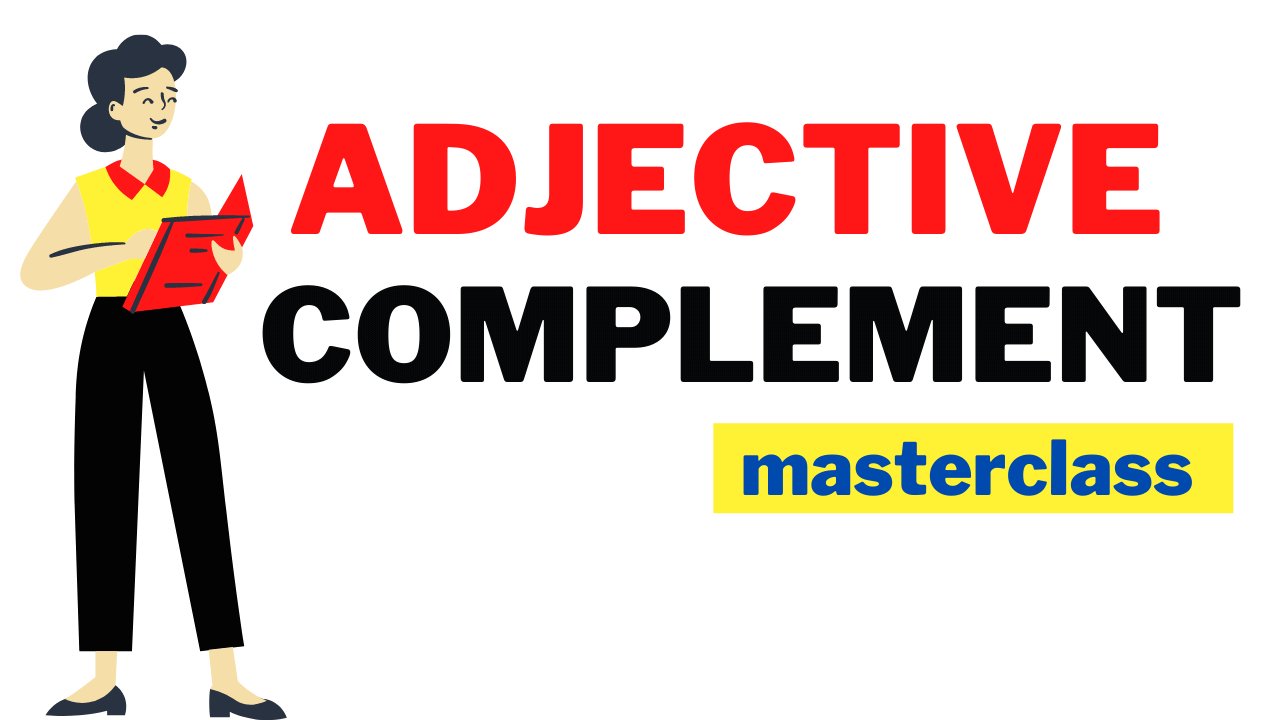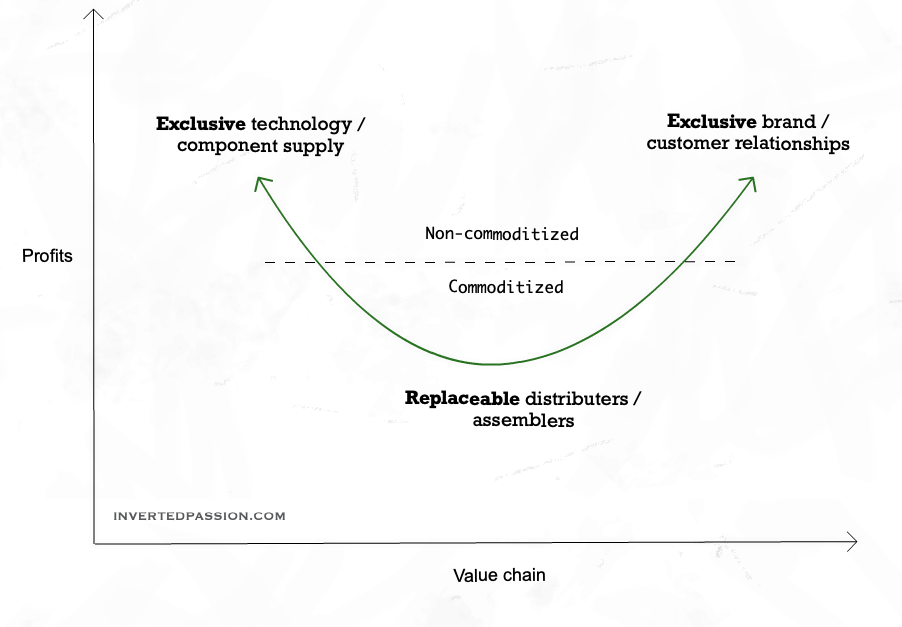
Complementary Goods Economics Help
Joel Spolsky in 2002 identified a major pattern in technology business & economics: the pattern of "commoditizing your complement", an alternative to vertical integration, where companies seek to secure a chokepoint or quasi-monopoly in products composed of many necessary & sufficient layers by dominating one layer while fostering so much compet.

Are You Commoditizing Your Customers? Partners in EXCELLENCE
Smart companies try to commoditize their products' complements. If you can do this, demand for your product will increase and you will be able to charge more and make more. They don't have to achieve industry scale to achieve commoditising their complement, they just need to get sufficient scale to dampen price / opportunity. Same.

Commoditize Past Tense Verb Forms, Conjugate COMMODITIZE
The lowest theoretically sustainable price would be the "commodity price" — the price that arises when you have a bunch of competitors offering indistinguishable goods. So: Smart companies try to commoditize their products' complements. This idea is more important than ever in the cloud era.

Complement Pathway Explained Epomedicine
11.29.21 Why Web3 projects should commoditize the complement (the product) Nearly twenty years ago, Joel Spolsky coined a phrase that informed the decision-making of countless startups and tech giants: "commoditize the complement." In general, a company's strategic interest is going to be to get the price of their complements as low as possible.

Linking Verbs & Subject Complements Curvebreakers
Commoditization could also flip the balance of software and hardware: if LLMs, the data and software, become commoditized, the hardware to train and serve them will be differentiated ( commoditize your complement ).

The economics of complements widely
Commoditize your complement March 22, 2021• Education Gwen published this wonderful piece on how large companies manage the ecosystem and create scales of economy. Economy without profit, but scale none the less. This is an important concept and valuable to apply. Making money depends on how you price in market, or price out the market.

Commoditize Your Complement Data, Software, LLMs, and Semiconductors
There is an alternative - "Commoditizing the complements", wherein a company makes other layers of the value chain (in which it is not present) less valuable, thereby keeping a major part of the economic profit for itself (or the layer in which it is present). Corry Wang @corry_wang

Subject Complement What is a Subject Complement? with Useful Examples • 7ESL
Commoditizing Your Compliments An OSS model competition, and some strategy bits -- 5/10/2023. David Hershey. May 10, 2023. Share this post.. It seems all these folks read the famous Strategy Letter V — open source is an excellent strategy to "commoditize your complements." For each of the sponsors of this competition, there is a very.

ADJECTIVE COMPLEMENT masterclass definition, types & examples
It seems the "commoditize your complement" model works to essentially give away low-margin products to get pricing power for higher-margin ones. Parker Institute for Cancer Immunotherapy and.

Objective Complements YouTube
The lowest theoretically sustainable price would be the ""commodity price""—the price that arises when you have a bunch of competitors offering indistinguishable goods. So: Smart companies try to commoditize their products' complements. If you can do this, demand for your product will increase and you will be able to charge more and make more. "
Twos Complement Examples
The lowest theoretically sustainable price would be the "commodity price" — the price that arises when you have a bunch of competitors offering indistinguishable goods. So, smart companies try to commoditize their products' complements. If you can do this, demand for your product will increase and you will be able to charge more and make more.

Commoditize your value chain before it commoditizes you Inverted Passion
So: Smart companies try to commoditize their products' complements. If you can do this, demand for your product will increase and you will be able to charge more and make more. This idea is explored more in Peter Thiel's Zero to One, which posits that capitalism and competition are opposites: one generates profit, the other destroys it.

Commoditize your complements (and open source software) Matt's Tech Bytes
In this case, the truism is to commoditize your complement. Companies have an incentive to push as much capitalism as they can into things they don't make money on, and keep the capitalism away from their main products as long as they can. So eg Google don't want to commoditize maps, because they're happy having a monopoly on mapping services.

The Complement Labs Collection Medium
The bytecode idea is not new — programmers have always tried to make their code run on as many machines as possible. (That's how you commoditize your complement). For years Microsoft had its own p-code compiler and portable windowing layer which let Excel run on Mac, Windows, and OS/2, and on Motorola, Intel, Alpha, MIPS and PowerPC chips.

Compliment vs Complement What's the Difference? Curvebreakers
The lowest theoretically sustainable price would be the ""commodity price""—the price that arises when you have a bunch of competitors offering indistinguishable goods. So: Smart companies try to.

101 Compliments That Will Make People Smile Ilham Usman Compliment words, Compliments for
So: Smart companies try to commoditize their products' complements. This idea is more important than ever in the cloud era. Companies are choosing to open-source their projects to get a go-to-market headstart but face headwinds later on when AWS or another cloud provider copy their offering (directly or indirectly).